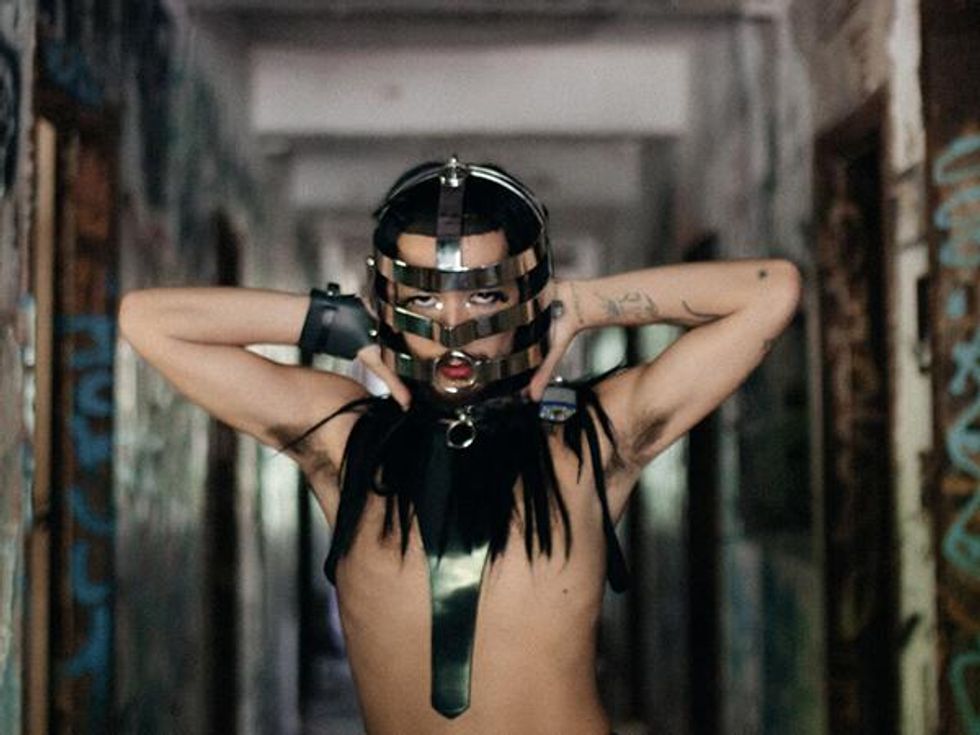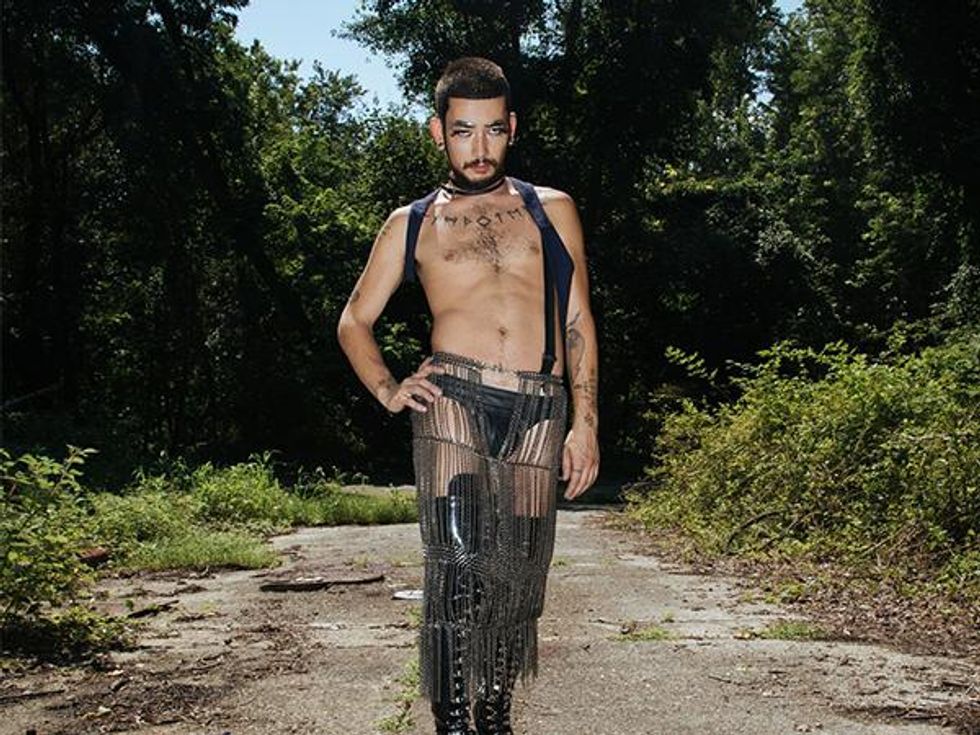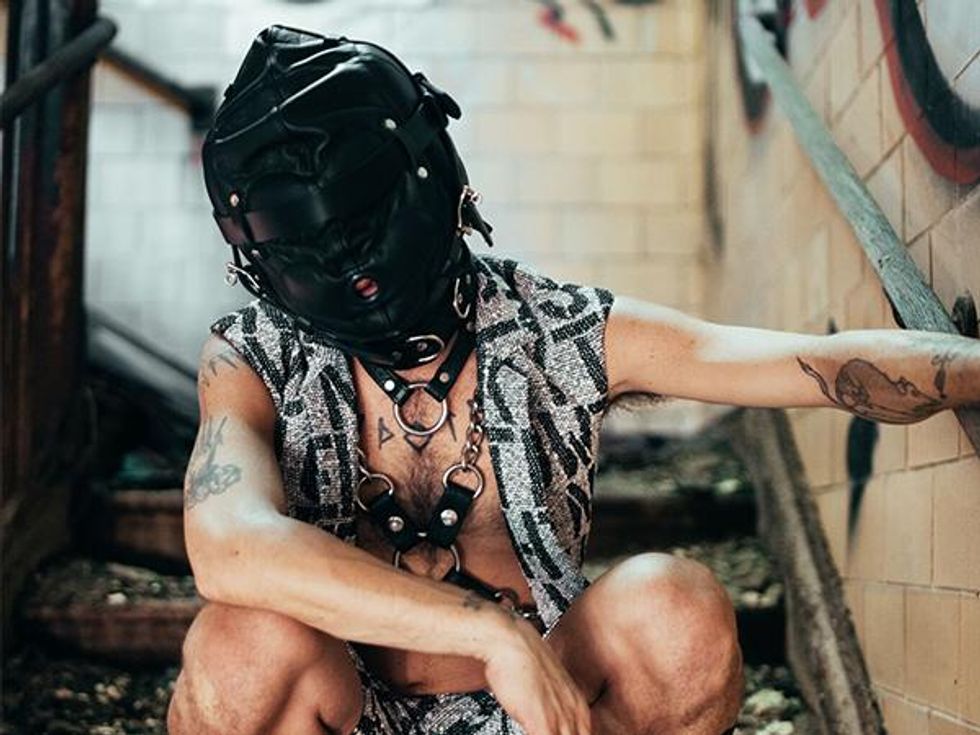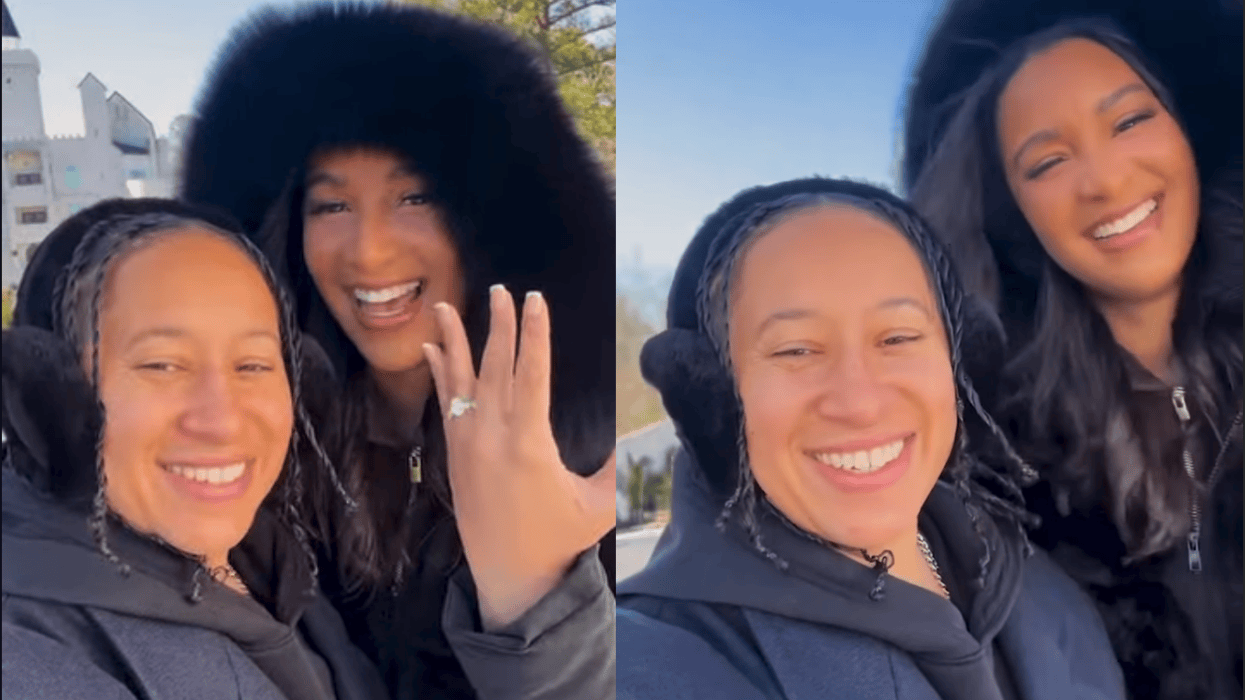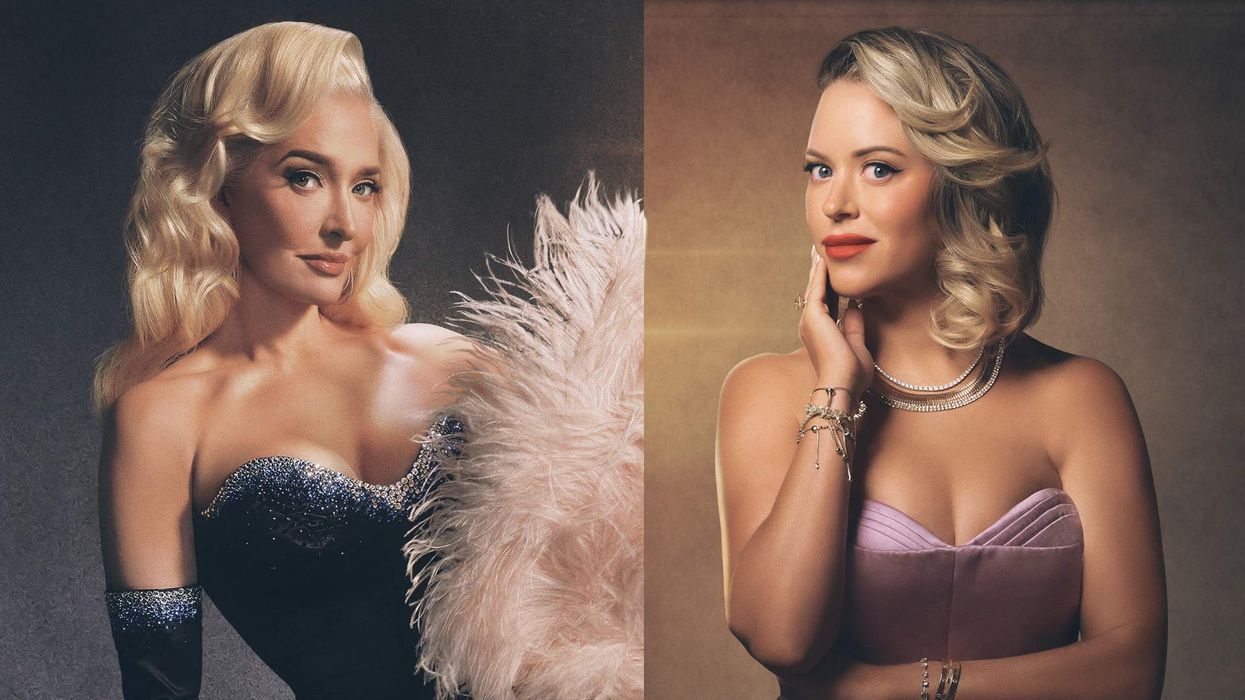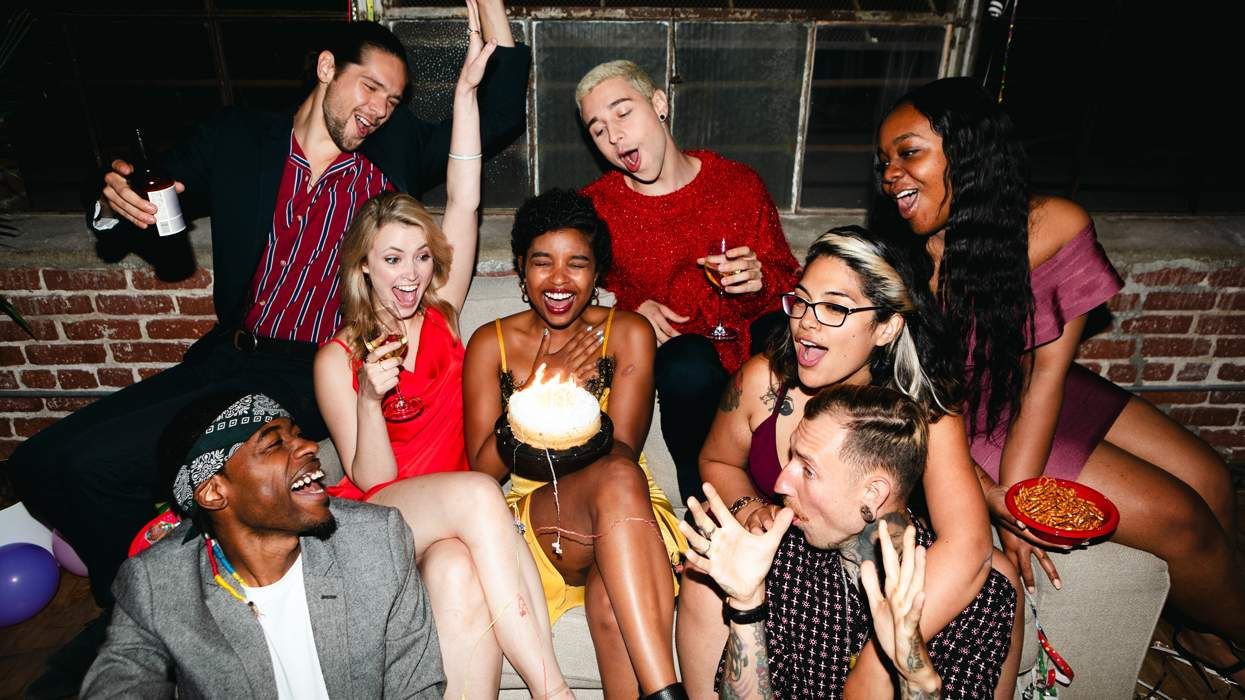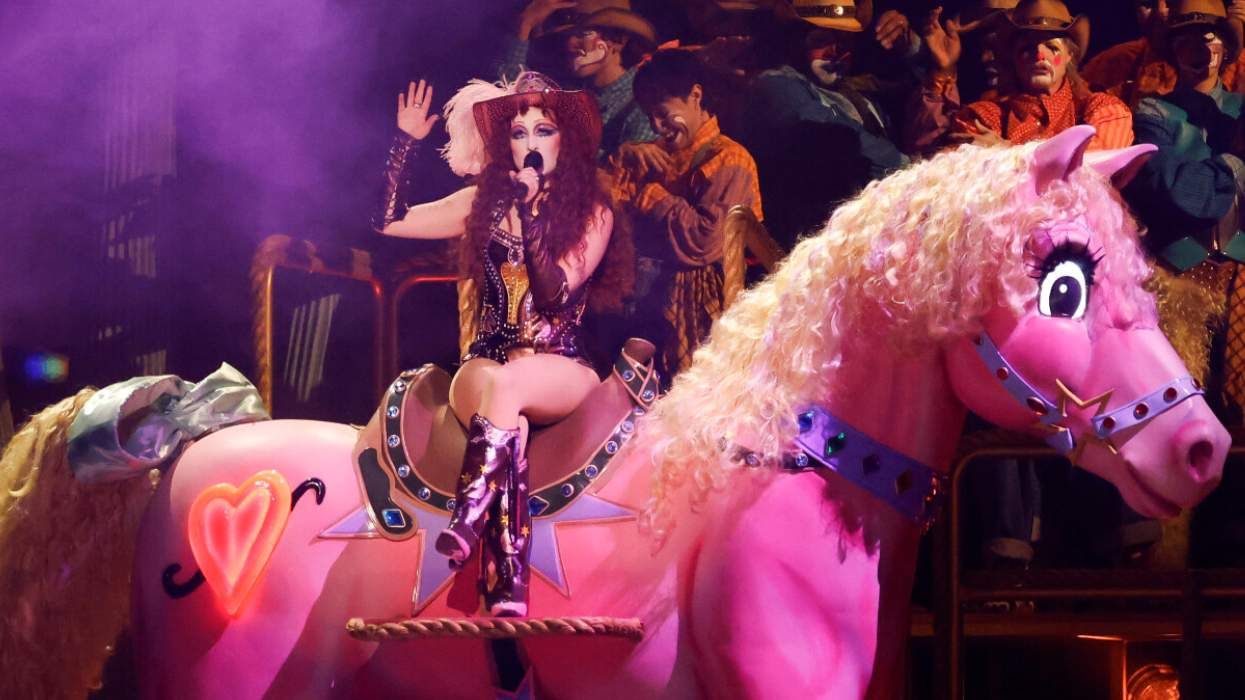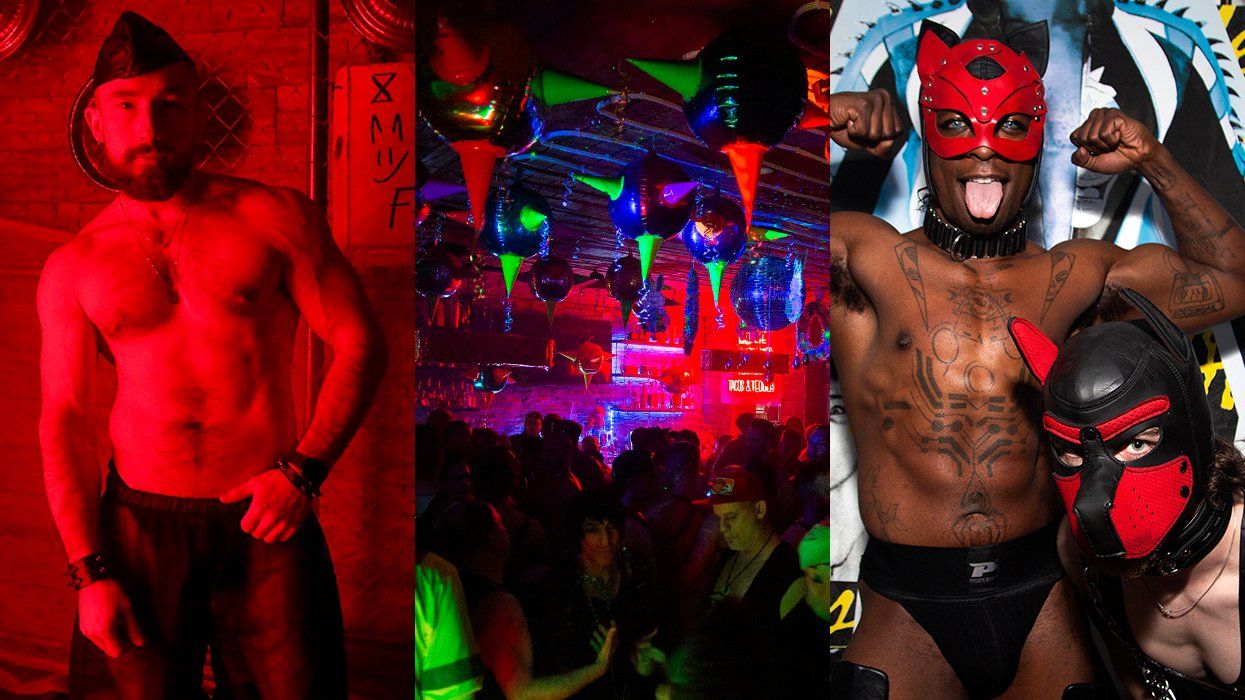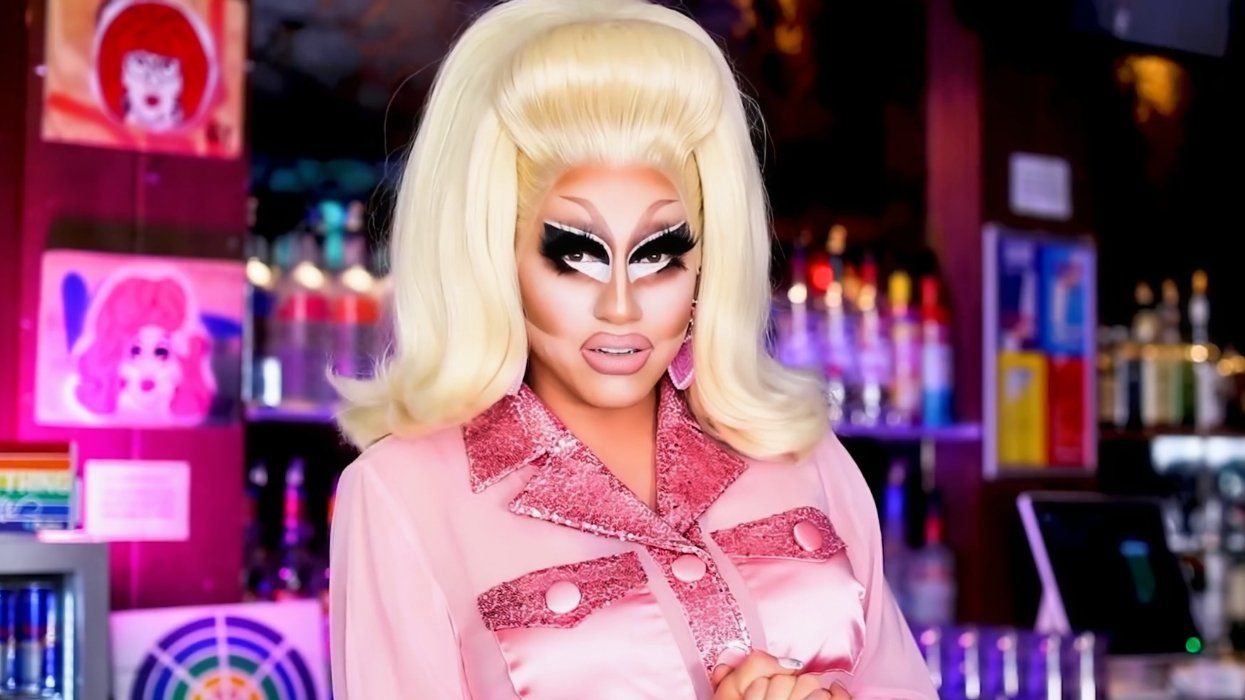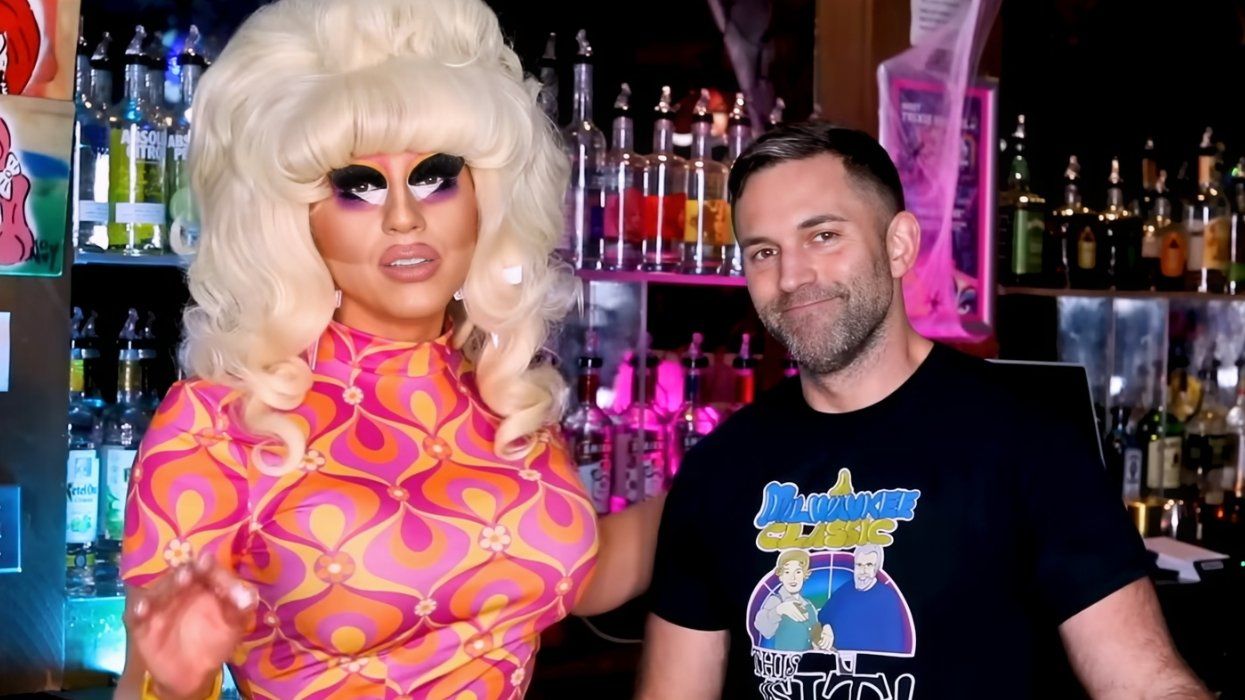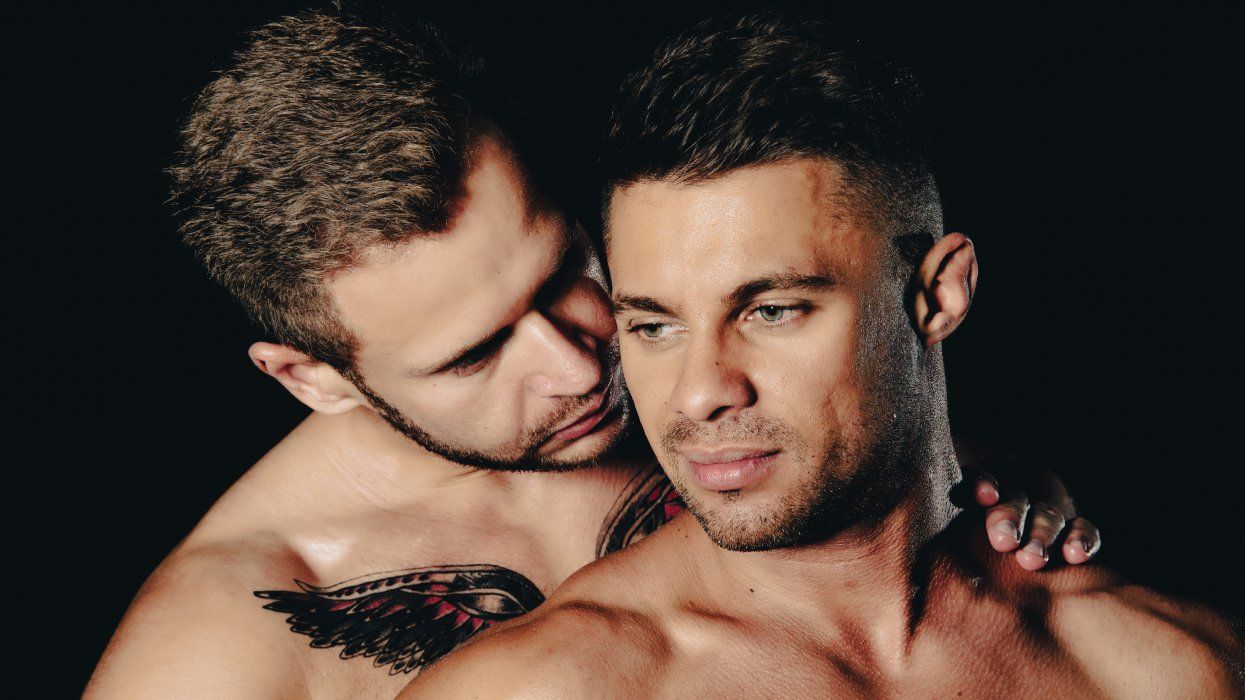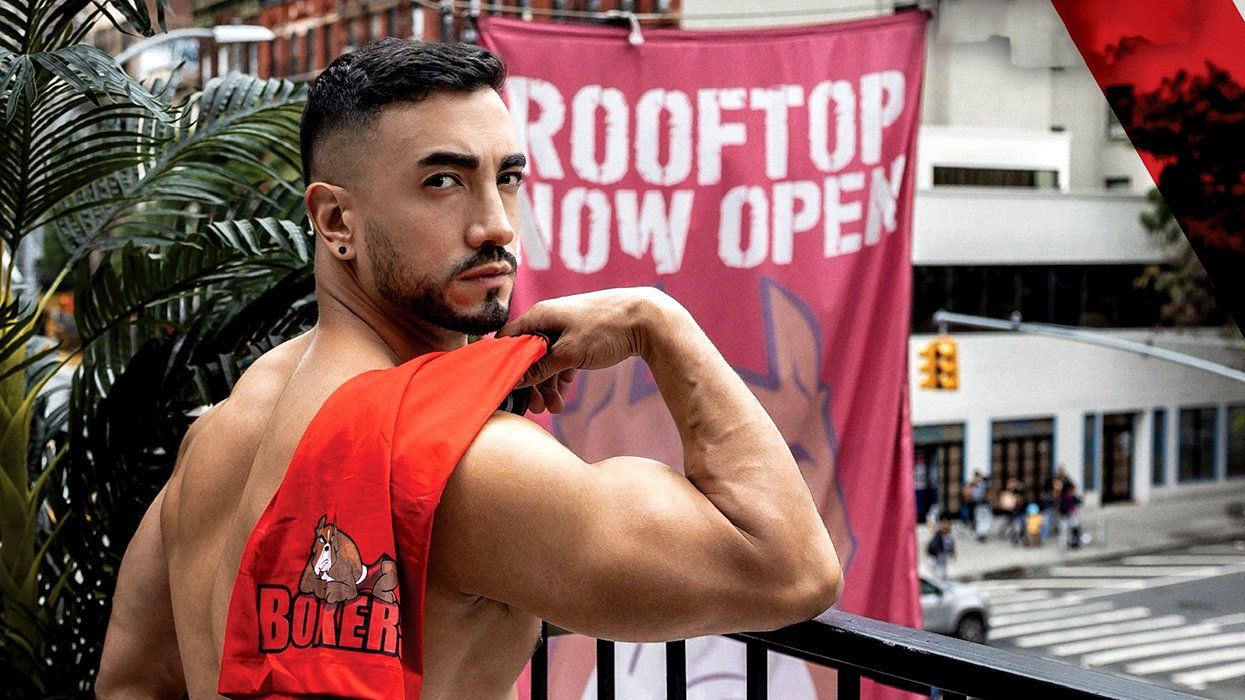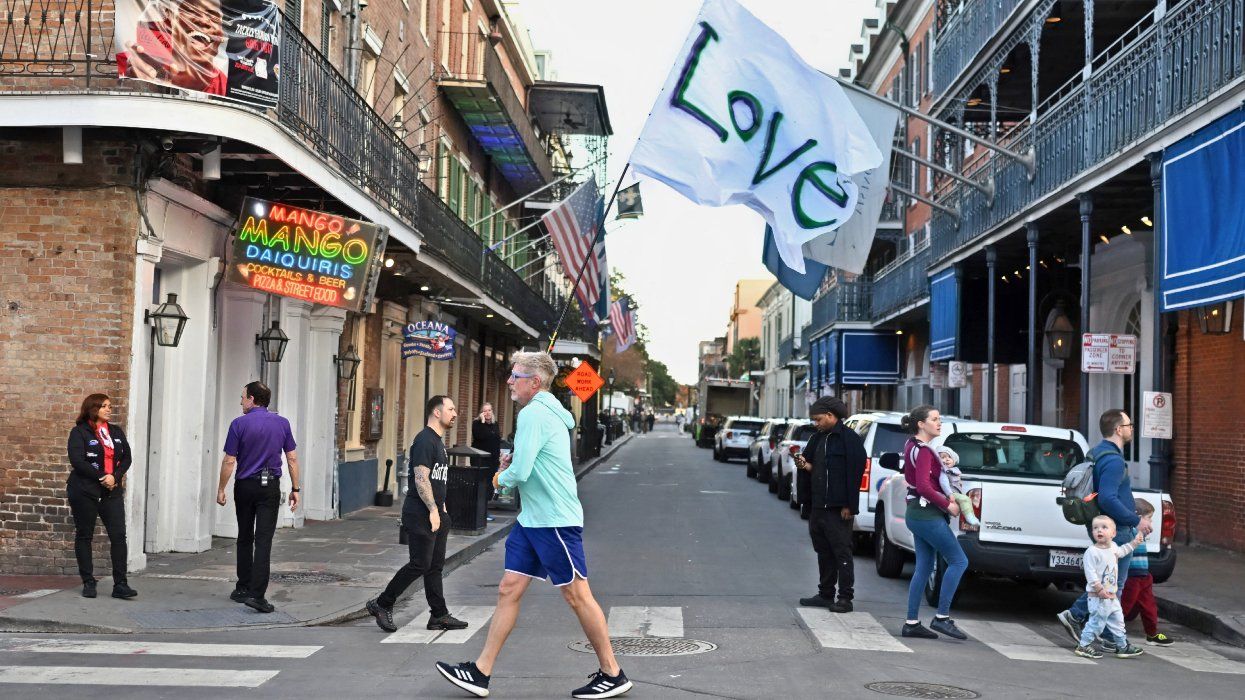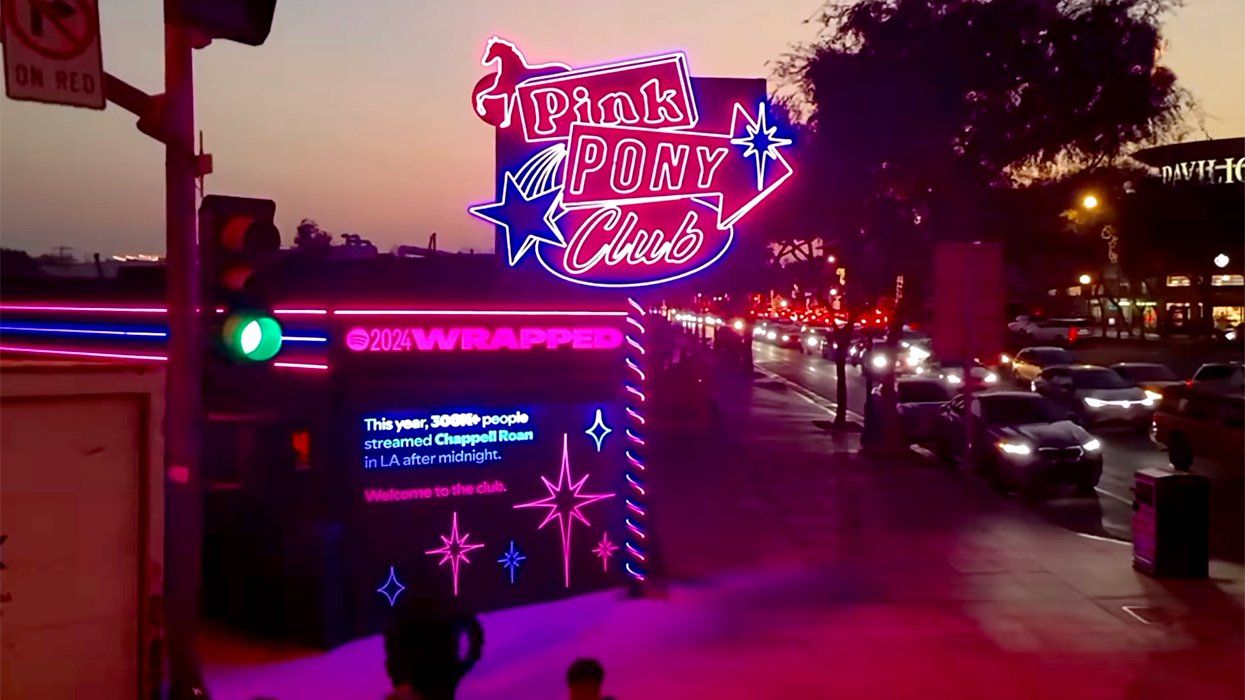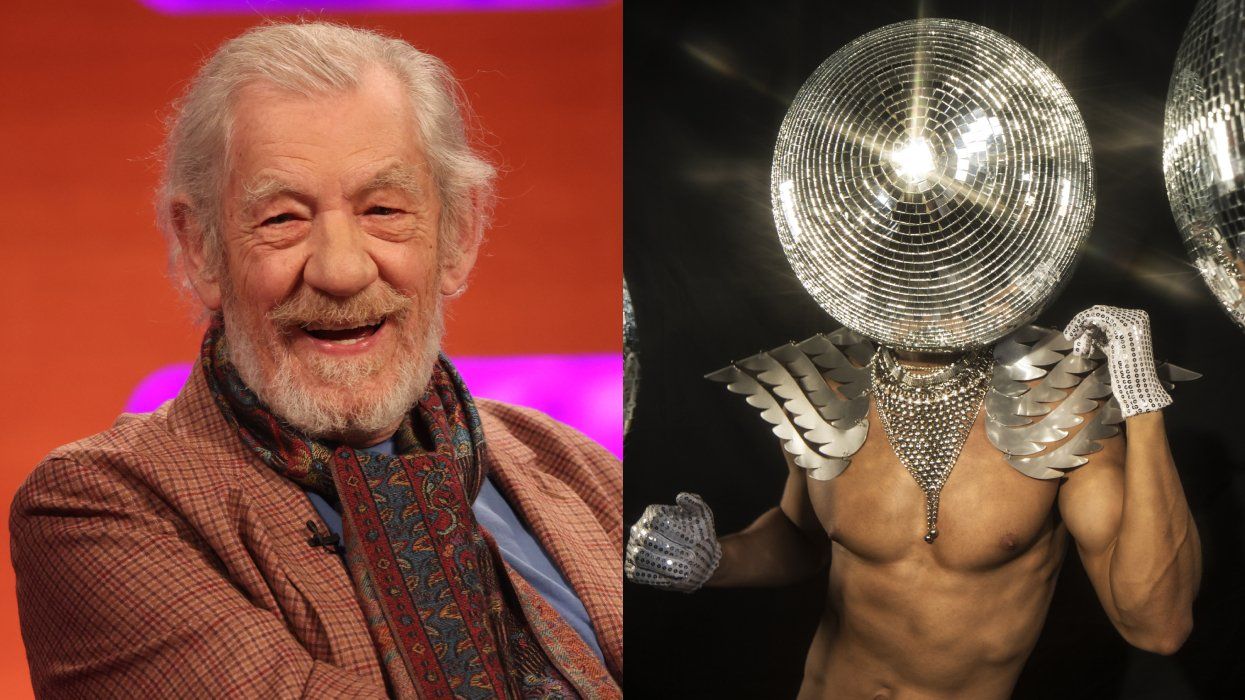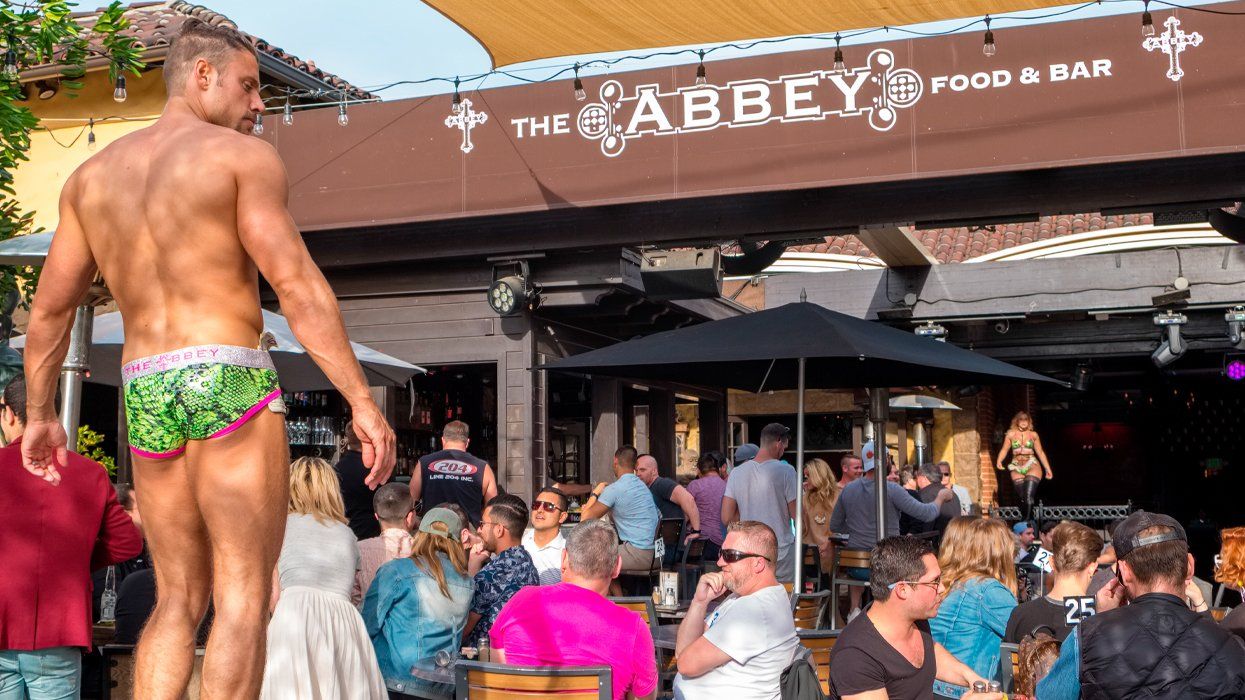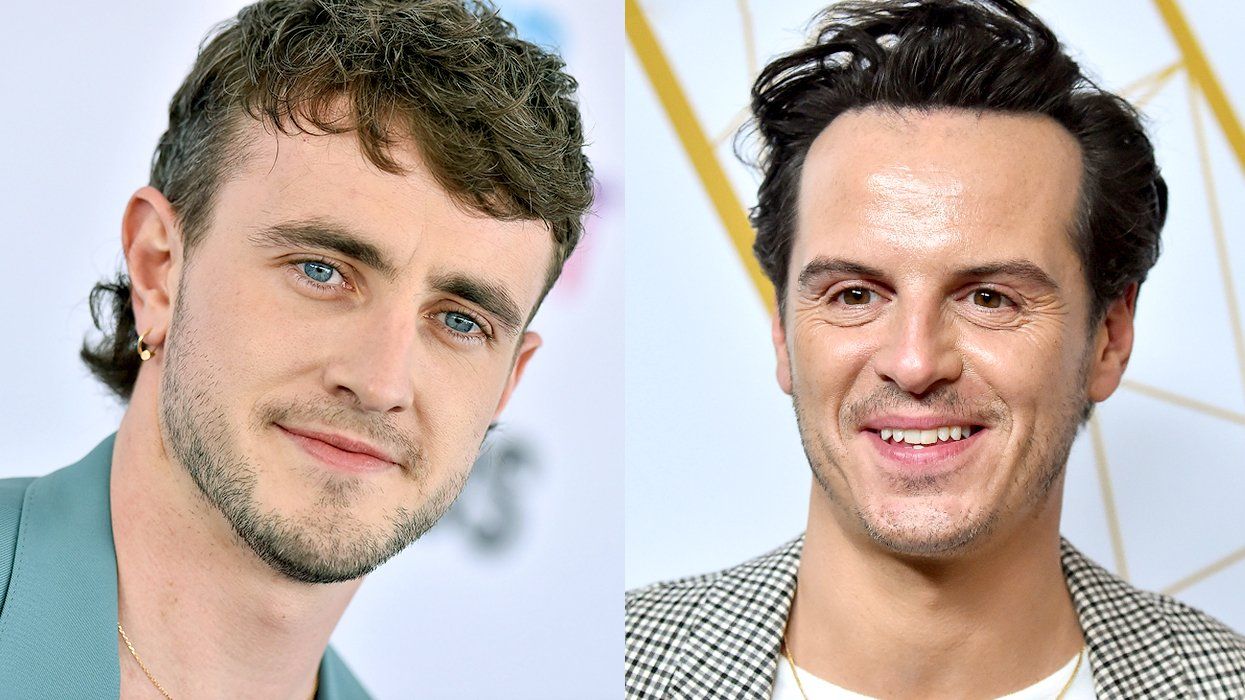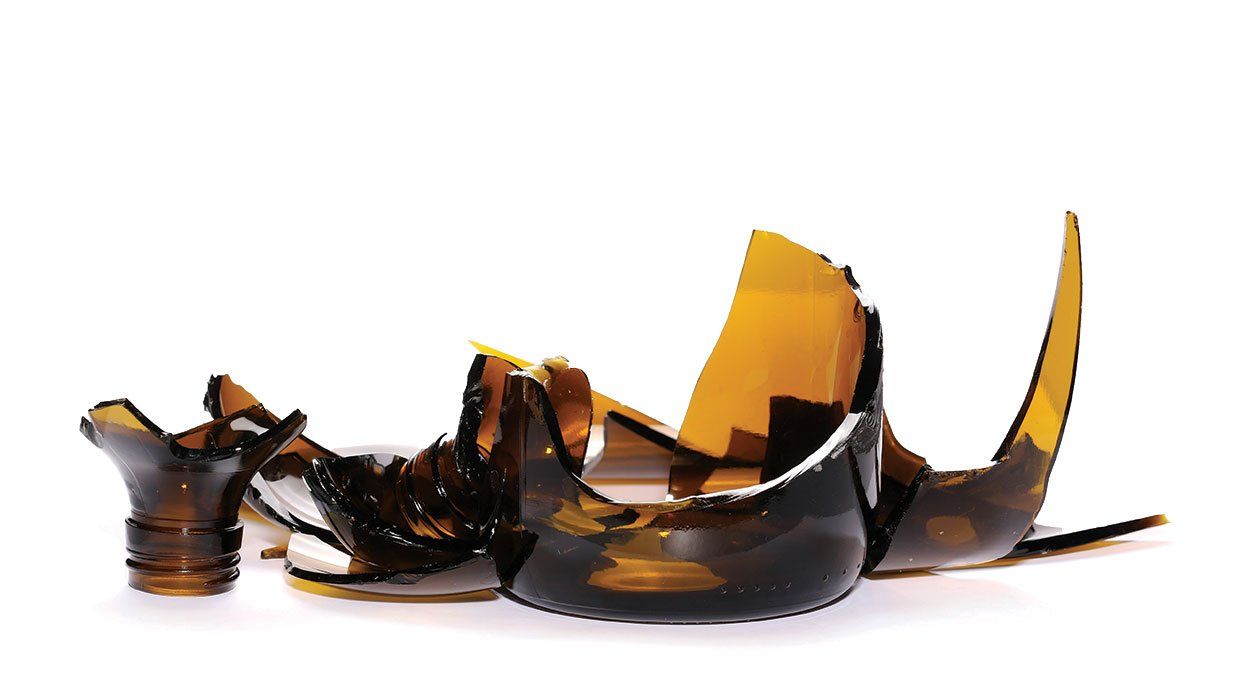"Queer people--especially Americans, are sometimes at a loss for associating with culture and associating with spirituality," calims Fet Fet, a regular on New York City's underground queer scene and a fixture at more high-profile parties like Holy Mountain. Fet Fet can almost always be found in an intricate-yet-revealing look bridging the gap between sexy and spooky, integrating his decidedly queer take on witchcraft into his role as a club host. "When I was growing up figuring out my sexuality, I was figuring out that sometimes sexuality and spirituality go hand in hand," explains the artist, who grew up looking for cultures and religions that "actually put gay people on a level of respect instead of stigmatizing and prejudice," which naturally led to an interest in witchcraft.
OUT: So what is your magical practice like, how do you apply it to your life/work/art?
Fet Fet: In essence, witchcraft to me isn't about these stereotypes of the dark gothic persona, but more about the simple act of putting intentions and ritual into your daily affirmations. If you think about something so much its more likely to happen, that's the sort of witchcraft that I'm speaking about.
Tell me about the deities/archetypes that are a part of your magical practice.
Through my personal development of witchcraft and living in New Orleans I found that I've been attracted to Papa Legba. He has his origins with the Fon people of Dahomey (Benin) Africa and is said to be the guardian and trickster of the crossroads and entrances. He is one of the most widely served African deities. In Haitian Vodou and New Orleans Voodoo, Papa Legba is the intermediary between the Loa (lwa) and humanity. He stands at a spiritual crossroads and grants or denies permission to speak with the spirits of Guinee, and is believed to speak all human languages.He is always the first and last spirit invoked in any ceremony, because his permission is needed for any communication between mortals and the loa - he opens and closes the doorway to the spirit world. He's kinda the club doorman for the spirit world.
Are there any aspects of your cultural heritage that you've been able to repurpose into your spiritual practice?
Yes! I totally forgot about my Japanese witchcraft with Noh Theater or Butoh. It's very dark and very similar to the roles of shamanic clowns. My nickname is Fetish because of my interest within spiritual symbolism, not necessarily because of the sexual obsession. Butoh was a way after world War II for Japanese to work through their spiritual darkness and to uplift and dance through it. One of the earliest Butoh pieces was inspired by Yukio Mishima, it explored taboos of homosexuality with that of a live chicken being strangled to death. It was a view of moving away from Japan's modern dance and more to a western style, creating these dancing creatures that were the haunted spirits of world War II.
Why do you think so many queer people find spirituality in nightlife?
It kinda sounds cheesy but I feel like gay people tend to replace their spiritual shunned childhood, their negative experiences with Christianity with nightlife.
Totally. I think that's a big part of why historically there are so many big Sunday dance parties with a very church like atmosphere, like Ladyfag's Battle Hymn. Can you tell me a bit about your role as a sacred/shamanic clown and how it relates to your work in nightlife?
I got this stupid tattoo for a scavenger hunt of a clown, kinda randomly. Later a friend explained to me that he thought it was based upon the history of shamanic clowns. I feel like my role as a host in nightlife is dressing up like this mostly darker, goth-like creature that helps guide people through their dark therapeutic experience of 'Letting go" of their reality of their day jobs, an experience of therapy were sex/drugs and dancing are the nonlinear solution.
Is getting into a look ritualistic for you?
In some ways it is, its a transformation of self. Sometimes my looks are just silly, but in the setting of a club sometimes it transcends who I am.
Do you think that the point of nightlife is ultimately transcendence?
Yeah, and that word is always used in nightlife but it really heals people in ways in which music does.
Do you think sometimes people--especially queer people--conflate nightlife with community when at the end of the day, it's a capitalist system?
Yeah totally, but I think that is where I have always built some kind of community. It used to be punk shows, and now I'm drawn to queers who expressed themselves through drag or performing or making music. I'm drawn to those people who see a problem with the community in society and instead of fighting it or breaking it down their activism is to create something they want themselves.
Fashion courtesy of the Cassavant Archive.



